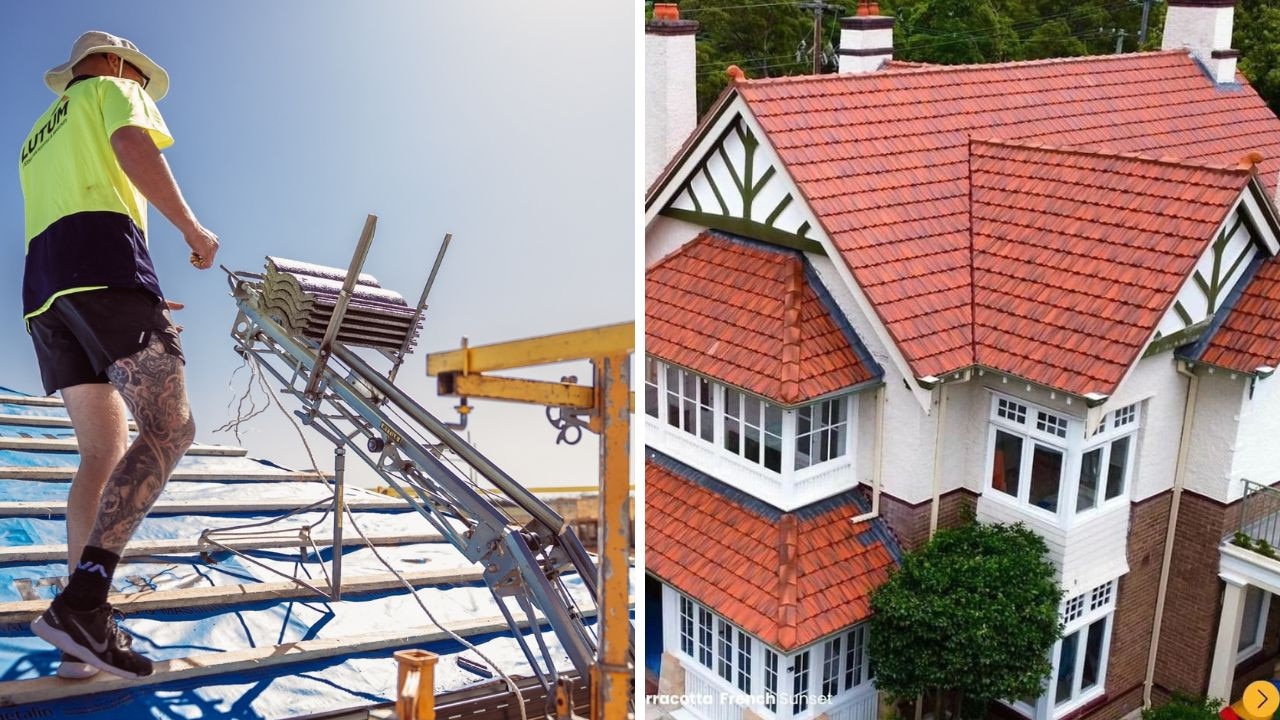A huge national company, which is a major supplier to the building industry, has fallen into voluntary administration after it racked up debts of $20 million.
Lutum is one of three manufacturers of roofing tiles in Australia and employs approximately 150 people.
It supplies roofing tiles and masonry products across Australia with manufacturing sites in NSW, Victoria and South Australia.
The company was previously a part of Boral, one of the largest construction materials manufacturer in Australia, before it broke out as a separate firm in 2021 after it was sold for $12 million.
Morgan Kelly, Martie Tziotis, Stewart McCallum and David Kennedy from Ernst & Young Australia (EY) have been appointed to handle the voluntary administration.
Mr Kelly told news.com.au that the business would be operating as usual for the foreseeable future where it will continue to produce product and fulfil orders.
“The directors have made the appointment at a point in time where there is enough working capital to have enough runway to facilitate a restructure and we anticipate putting it on stronger footing,” he said.
“With the protection of voluntary administration, it gives the company breathing space to put the restructure in place. We are continuing to deliver and supply and engage with all our stakeholders to keep them informed as we need their support moving forward, especially the employees.”
Lutum had experienced a “challenging period” due to record rainfall, critical labour shortages, pressure on the industry and increasing working capital conversion cycles, he added.
Administrators are seeking a party willing to inject funds into Lutum via a sale which is hoped to be completed within three months, Mr Kelly said.
“There is a few levers with what can be done such as internally restructuring the business but what I think will need to happen is an equity solution with either a partial or complete sale of the business and given this is one of three manufacturers of roofing tiles in Australia and given the significance of that to the Australian housing market – there is a large demand for what Lutum has to offer,” he said.
The existing management team at Lutum will also remain in place and will work closely with the administrators through this process.
“Our team is working closely with management to ensure continuity of service to the group’s
customers across Australia,” Mr Kelly said.
“The outlook for the group is improving, despite the pressures on the broader industry, and we will be focused on securing the legacy of this proudly Australian business that has roots dating back to 1960.
“Discussions with interested parties are ongoing, and we will engage with these and the broader market to secure a long-term equity solution for the business.”
Lutum recently filed its first financial report since it broke away from Boral for the year to June 2022, which reported a pretax profit of $8.6 million on revenue from trading, another $18 million in revenue for the “gain on acquisition” and a net after tax profit of $11.1 million.
However, it raised issues that it had faced including that it had been “significantly impacted” by a number of one off costs after it was sold by Boral and quality issues in the NSW manufacturing plant.
“A deeper review of operations following acquisition highlighted that poor product quality in both concrete and terracotta tiles manufactured in NSW had resulted in a significant loss of market share in NSW,” the financial report said.
But Mr Kelly said those quality issues aren’t a consideration now.
“The quality of output from Lutum is really high, which is one of the reasons it’s quite popular and successful with customers as they have good product, its not product quality or customer support which have got them into difficulty,” he said.
“The challenges are weather delays with construction and scarcity of labour, challenges with labour shortages and the entire building industry is having a slowdown in payment terms and also activity.
“So if they don’t have enough in their balance sheet to wear those challenges it can become problematic for continual trade and that’s the situation that Lutum is facing and we are seeking to address though the voluntary administration process.”
News.com.au has reported on dozens of builders going into administration and liquidation over the past two years.
In times of economic hardship and inflation, building companies are usually the first to feel the pinch as they run on such small margins.
A staggering 2349 construction firms have collapsed in the past year — with fears more may fall soon.
Indeed, of the 8471 business collapses for 2023, almost 28 per cent were in the building and construction industry, according to data put out by the corporate regulator.
Recent figures from the end of March from ASIC showed the number of construction industry insolvencies was up by more than one third to 2142 from 1598 compared to the same period last year.
But now the crisis is also hitting suppliers like Lutum.
Melbourne-based company MadeCo, which was responsible for kitchen manufacturing, went into voluntary administration with 30 employees impacted and $2.5 million in debt.
n Meanwhile, a collapsed group of manufacturing companies based out of a Western Sydney factory, with 12 companies linked to Sydney-based cabinet making and panelling factory GDK Group went into liquidation, amassing debts of $78 million.
Other recent collapses include workers at two NSW factories who slammed their former employer after the company went bust, leaving them and other creditors multiple millions out of pocket.
Another company involved in the construction sector collapsed with just $6 left in its bank account and now owes creditors more than $2 million.
sarah.sharples@news.com.au
